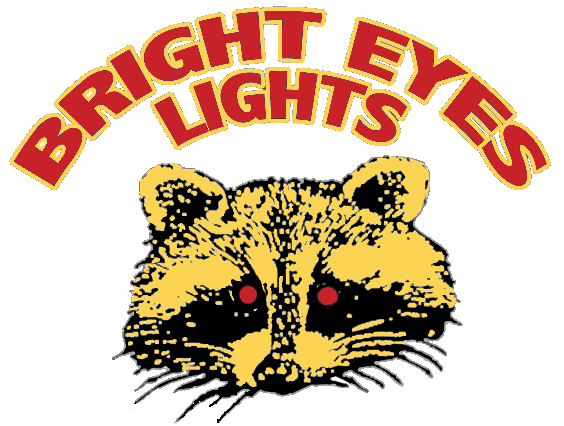Coon Hunting Terms to Know
Posted on February 11 2022

Coon hunting is an old sport started by Native Americans who hunted raccoons for furs and meat. Since it’s been around for at least a couple of centuries now, it’s no wonder that the sport has developed a vocabulary of its own. While some of the jargon is self-explanatory, a lot of it only makes sense once it’s been explained.
So, if you’re new to coon hunting, there are quite a few terms that you’ll need to know. Let’s take a look at some of these words and phrases and what they mean.
Ahead of the race - This phrase refers to the rare occasions when you are in front of the hunt, and your dog runs a raccoon past you. This way, you can see the animals when they’re in action.
Automatic strike dog - This term describes a hound that starts barking as soon as it’s unleashed to hunt.
Babbler/Loose mouth - A babbler is a dog that barks constantly without smelling anything. These types of barks are referred to as babbling barks.
Back Track - This is when your hound runs the track in the wrong direction from where the coon went.
Bark up/Changeover bark - This is the difference in your dog’s bark from trailing to treeing. This change lets you know the dog has found the tree.
Barks per minute - This is the number of barks counted during each minute of treeing.
Bawl/bawl mouth - A bawl is a long, drawn out or prolonged bark.
Baying - This is the barking you’ll hear once the coon has been located and cornered on the ground.
Belly rubbing - This is when the dog trees with his chest against the tree.
Blanketback - This term refers to a dog’s fur pattern with a black marking on the back all the way from the neck to the tail.
Blowing the acorns out of the tree/Blowing the top out of it - This is a saying used to describe the incessant barking of your dog when it has treed a coon.
Blueticking - Bluetick is a breed of coonhounds known for running a track nose to the ground and working at a slower pace. This hunting style and the dogs’ long bawl are referred to as blueticking. It’s also a term for barking incessantly but not going anywhere.
Breaking scent - To make sure your dog only tracks raccoons, you’d use a breaking scent, which is the scent of unwanted game used to break the dog from pursuing that scent.
Brick wall - You’ve hit a brick wall when your dog follows a track and hits a dead end.
Broke dog/Finished dog - This is a dog that is broken in and won’t chase unwanted game.
Caged coon - A caged coon is one caught in a humane trap to use for training dogs.
Cast - If you’re competing in a nite hunt, the cast is basically the team. It’s the group of hunters and dogs (four of each) working together in the competition.
Cast out - When you turn the dogs out.
Cat foot - This term describes a short-toed, round, compact foot with knuckles high and well-arched toes (like a cat’s foot).
Catch dog - Catch dogs are not usually used for coon hunting, but you might hear the term. It’s a dog that is used to physically catch game on the ground, typically wild pigs.
Check in - This is a dog that will come back to “check-in” if no game is found.
Check dog - A straight dog that’s used to make sure the track is from the desired game.
Chop bark/Chop mouthing/Tree bark - Short, sharp, and fast barks that let the hunter know when a coon has been treed.
Close hunter - This is a dog that stays close to the hunter while searching for a scent trail.
Cold nose - A dog that can smell and follow an old track without much scent left (a cold trail) accurately is designated as a cold nose.
Cold track - An old track that may be broken and doesn’t have much scent left, making it harder for dogs to follow. Conversely, a “smokin’ hot deal” describes an extremely fresh track.
Cornfield race - Dogs that are following raccoons through a cornfield. Usually, this happens during the summer season, when raccoon numbers are high, and scenting conditions are ideal.
Deep/Wide - When a dog is hunting far away from you.
Den tree - A tree where coons can get inside and hide/live.
Dog Box - A box that is built to go in the back of a truck (like a dog crate) where the dog can ride safely.
Dozer pile - This is a pile of brush that’s on the ground where hounds can sometimes tree a raccoon.
Dying bawl - A prolonged howl that falls off in volume.
E-Collar - This is an electronic collar used to train hounds. You can break a dog from following unwanted game with a shock collar.
Face barking - This is when one of the dogs barks viciously in another one’s face at the tree.
Fast track/Hot track - A track that was recently made and is extremely fresh, making it easy for hounds to follow.
Fully open - When a dog is on a scent trail and barking freely.
Gator/Ill dog - A mean dog who frequently gets into fights with other dogs.
Hide dog - A dog that’s a consistent hunter and can tree a coon every time.
Hit a track - When a dog is hunting for game and finds a track. The dog will announce it with a strike bark.
Hitchhiker/Cover dog/Me too - A dog that will follow the lead of another dog, even if they don’t have the scent.
Hot nose - A hound that will only work recently made, fresh game tracks.
Junk game/Off game/Trash - Any type of unwanted game.
Laps - Trees that have fallen over onto each other. This makes it harder for hounds to hunt and creates easy escape routes for treed game.
Layup - A raccoon that hasn’t been on the ground recently, but the dogs can catch its scent on the wind.
Locate - The long bawl that a dog makes when it trees a coon.
Nite hunt - A competition coon hunt held by kennel clubs.
On track - When a dog is trailing a raccoon.
Open - The howl or bark of a dog on a trail.
Pressure tree dog - This is a dog that will stay treed until you get there. It won’t leave and will stand the pressure of other dogs barking.
Scent drag - A drag that’s made of cloth or canvas and has the desired game scent on it. It’s dragged across the ground to leave a scent trail for training purposes.
Shining - Searching a tree with your light to find the raccoon.
Silent - A term used to describe a dog that runs a track silently without opening/barking.
Slick tree - When the hunter gets to his treed dog and finds the tree is empty it’s called a slick tree.
Split tree - When a dog trees a coon on a separate tree from where the other dogs treed.
Squall - A sound that imitates a raccoon in distress. This call usually gets coons to look around and sometimes come out of hiding, making them easier to spot. This can be done by voice or with a coon squaller.
Strike - This bark is the one that lets you know the dog found a track.
Tap up - When a coon starts up a tree but abandons it for another tree.
Track - A track is the scent trail left by a game animal.
Track straddler - This is used to describe a dog that follows the track with its nose down, smelling every step the game made, barking constantly.
Tracking collar - This is a collar used to track the location of your dogs.
Treed - This is when the dog has chased the raccoon up a tree and is standing at the base barking.
Tree in a hole - This is when a dog runs a raccoon into a den or hole in the ground instead of up a tree.
While this may not cover every single term you’ll hear while on a coon hunt, it should give you a pretty good grasp of what’s going on. And, if you’re looking for the proper coon hunting gear, don’t forget to check out Bright Eyes Lights for all your coon hunting needs.

